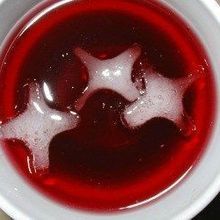sugar

Getting to the Root of the Plant Microbiota
Niki Spahich, PhD | Jul 8, 2024 | 5 min read
In plants, sugar transport and microbial community composition go hand in hand.

Inositol in Human Breast Milk Improves Brain Connectivity
Charlene Lancaster, PhD | Oct 16, 2023 | 5 min read
The sugar myo-inositol is plentiful early in lactation and increases synapse size and abundance in the developing brain.

Beyond Individual Nutrients: Complex Diet and Cancer Connections
Deanna MacNeil, PhD | Dec 6, 2022 | 4 min read
Scientists develop cancer nutrition guidelines based on research examining how dietary patterns affect cancer risk and prevention.

Sweet Taste Receptors Regulate Proteins in Developing Fruit Flies
Tess Joosse | Nov 14, 2022 | 2 min read
An unexpected find shows that sweet-sensing receptors also help epithelial cells in Drosophila larvae stay alive amid proteotoxic stress.

Getting Started with Glycan Screening
The Scientist and Vector Laboratories | Sep 16, 2022 | 1 min read
In this webinar, August Estabrook will discuss how to use immunofluorescence to screen for glycans.

Science Snapshot: Taming the Fungus Amongus
Lisa Winter | Jun 8, 2022 | 1 min read
Human mucus contains glycans that could one day treat harmful Candida albicans infections.

How the Gut Differentiates Artificial Sweeteners from Sugars
Chloe Tenn | Jan 21, 2022 | 5 min read
Signals from sweeteners and sugars are relayed from the gut to the brain by different neural pathways, a new study concludes.

Glycans May Bind to RNA, Initial Findings Suggest
Emily Makowski | Oct 7, 2019 | 3 min read
This is the first time sugars have been found connected to RNA molecules, suggesting a new role for RNA.

There’s a Troubling Rise in Colorectal Cancer Among Young Adults
Katarina Zimmer | Aug 26, 2019 | 7 min read
Some experts blame our modern, sugary diet, while others think that gut microbiome changes and sedentary lifestyles may play a role. Altogether, the causes are far from clear.

Sweetened Drinks Linked to Higher Mortality Risk
Catherine Offord | Mar 19, 2019 | 2 min read
While sugary beverages seem to be the worst offenders, artificially sweetened drinks might also be associated with health problems, an observational study suggests.

Salk Institute Cofounder Melvin Cohn Dies
Ashley Yeager | Oct 26, 2018 | 2 min read
Cohn was a leader in gene regulation and immune system research and left a lasting legacy in La Jolla.

Caffeine-Triggered Cells Help Control Blood Sugar in Diabetic Mice
Diana Kwon | Jun 20, 2018 | 1 min read
Scientists engineered human cells to produce a molecule that stimulates insulin secretion in the presence of caffeine.

Industry-Funded Sugar Study: Don’t Trust Other Sugar Studies
Joshua A. Krisch | Dec 20, 2016 | 2 min read
Two opposing papers in Annals of Internal Medicine battle over dietary guidelines on sugar.

Controlling Cravings
Jef Akst | Dec 29, 2015 | 1 min read
A hormone made in the liver controls how much sugar mice eat, according to a study.

The Death Toll Tied to Sweet Drinks
Kerry Grens | Jul 1, 2015 | 2 min read
Annually, about 184,000 deaths annually are linked to drinking sugary beverages, according to a new study.

Sugar Substitutes, Gut Bacteria, and Glucose Intolerance
Anna Azvolinsky | Sep 17, 2014 | 4 min read
The consumption of artificial sweeteners results in glucose intolerance mediated by changes in the gut microbiota in both mice and humans, researchers report.

“Safe” Sugar Levels Harm Mice
Dan Cossins | Aug 15, 2013 | 2 min read
A high-sugar diet comparable to that consumed by up to a quarter of Americans renders mice less able to compete for territory and reproduce.

Molecule Wards Off Mole-Rat Cancer
Kate Yandell | Jun 20, 2013 | 2 min read
A sugar protects the subterranean rodents from out-of-control cell division.
A Spoonful of Sugar
Jef Akst | Nov 23, 2011 | 2 min read
A special glucose molecule makes tumor cells more vulnerable to a pair of cancer cell-killing drugs.
